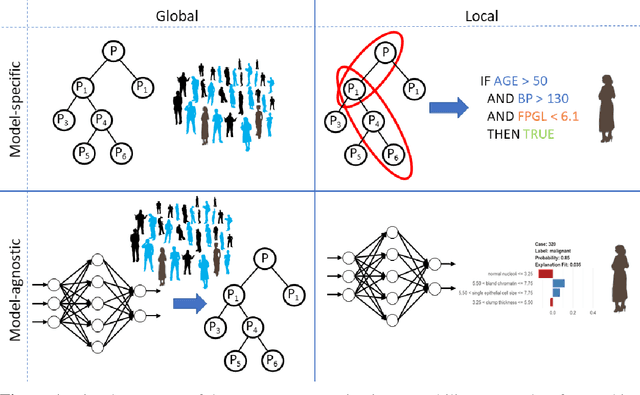Nino Fijacko
Interpretability of machine learning based prediction models in healthcare
Feb 20, 2020
Abstract:There is a need of ensuring machine learning models that are interpretable. Higher interpretability of the model means easier comprehension and explanation of future predictions for end-users. Further, interpretable machine learning models allow healthcare experts to make reasonable and data-driven decisions to provide personalized decisions that can ultimately lead to higher quality of service in healthcare. Generally, we can classify interpretability approaches in two groups where the first focuses on personalized interpretation (local interpretability) while the second summarizes prediction models on a population level (global interpretability). Alternatively, we can group interpretability methods into model-specific techniques, which are designed to interpret predictions generated by a specific model, such as a neural network, and model-agnostic approaches, which provide easy-to-understand explanations of predictions made by any machine learning model. Here, we give an overview of interpretability approaches and provide examples of practical interpretability of machine learning in different areas of healthcare, including prediction of health-related outcomes, optimizing treatments or improving the efficiency of screening for specific conditions. Further, we outline future directions for interpretable machine learning and highlight the importance of developing algorithmic solutions that can enable machine-learning driven decision making in high-stakes healthcare problems.
 Add to Chrome
Add to Chrome Add to Firefox
Add to Firefox Add to Edge
Add to Edge